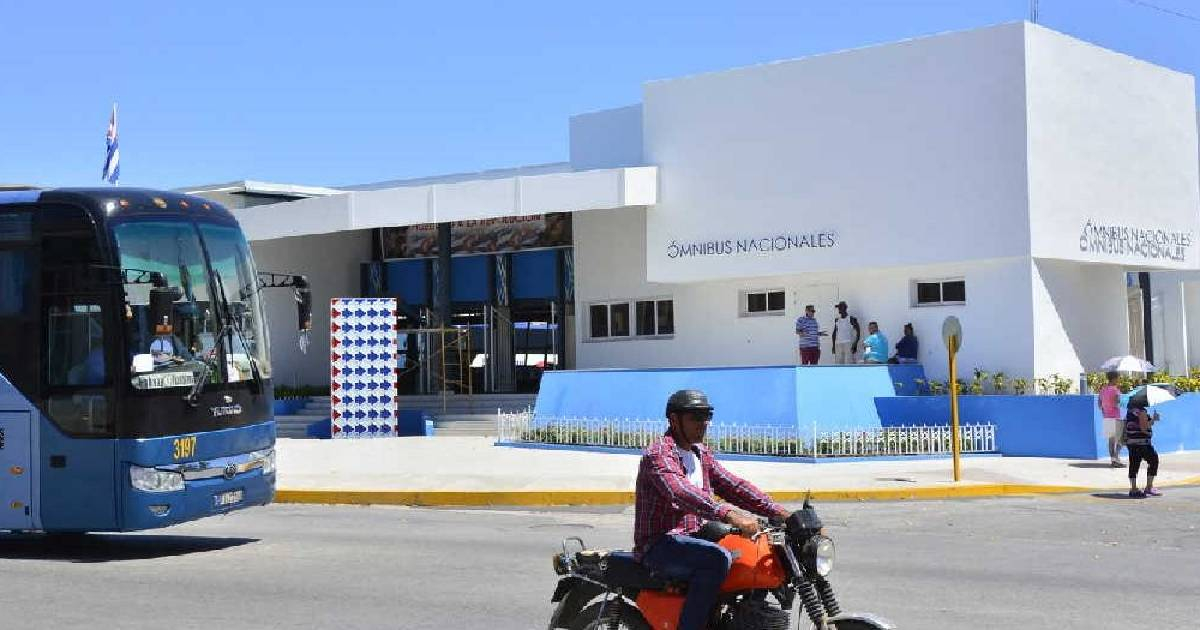Acquiring a ticket to leave Sancti Spíritus has become a grueling task where legality takes a backseat, proving to be the slowest and often futile route. While travelers endure endless lines, glitches in the Viajando app, and exasperating waitlists, those with enough cash to pay "under the table" easily secure tickets.
An article from the official Escambray outlet exposed the chaos and corruption that persist in interprovincial transport within the province, mirroring a nationwide issue where the demand for tickets far exceeds supply. This situation breeds an ideal environment for illegal activities and bribery as the currency of choice.
"Even though few make accusations with specific names, the general consensus is that anyone with enough money to bribe can quickly get a ticket," the report highlighted.
Despite National Bus and Viajeros company officials acknowledging "some administrative penalties and even permanent dismissals against drivers and terminal workers, along with certain service adjustments to prevent ticket reselling," the reality "cannot be hidden," admitted the state-run publication.
Citizen complaints remain scarce, not due to a lack of victims, but because of fear of retaliation and distrust in institutional effectiveness. The media directly challenged the state-run Viajeros company, urging it to better manage and control its ticket sales.
The corruption extends from illegal ticket sales within terminals to selling space in luggage compartments, charging for non-existent seats, overcrowded aisles with standing passengers, and arbitrary stops serving personal interests.
According to the report, drivers who feel like "lords and masters" of the buses and "engage in various schemes" contribute to the problem.
Technical and Logistic Challenges
The technical condition of the fleet doesn't help either. Of the 28 buses available in the province, only half are operational due to a lack of tires, parts, batteries, and oils. Despite this, authorities claim no trips have been canceled, although 8% have experienced delays.
As an alternative, the Viazul service remains available for tourists and Cubans with access to international currency-backed cards on two routes: Trinidad-Varadero and Trinidad-Sancti Spíritus. CiberCuba recently confirmed with company officials that payments are only accepted in euros and through bank cards like Visa or MasterCard. This method, although not new, excludes Cubans within the island who opt for Viazul, which, despite numerous deficiencies, offers a more regular service than the interprovincial bus network.
According to Escambray, this option annually generates over 450,000 pesos in freely convertible currency, with usage decided by the company at the national level. In recent times, it has enabled improvements in the buses covering interprovincial routes.
"The country prioritizes this service," the official rhetoric claims, but in practice, most residents of Sancti Spíritus remain caught in the vicious cycle of waiting, frustration, or bribery.
Recent Measures and Persistent Issues
At the start of 2025, the Ministry of Transport reduced the number of tickets a user can purchase through the Viajando app within 30 days, from 30 to 15, ostensibly to streamline the ticketing process for interprovincial bus and train travel.
Historically, overbooking has flourished in Cuban terminals, fueled by the scarcity of interprovincial transport. Travelers may spend days overnighting and sleeping on the floors in waitlist terminals.
The energy crisis also impacts national bus terminals, with only three possessing power generators to ensure electricity supply: the Central and Villanueva Stations in Havana and the Guantánamo station. The rest of the country's stations lack this energy backup.
Additionally, several incidents related to theft in Cuba's interprovincial transport raise safety concerns. In March, three individuals attempted a robbery on a bus traveling the Havana-Camagüey route. One hid in a suitcase in the vehicle's compartment while the other two posed as passengers. The driver noticed suspicious behavior and stopped the bus. Passengers confronted the would-be thieves, delivering a beating before police arrived.
The National Bus Company concluded 2024 with a significant reduction in operations, maintaining only 36% of the trips made in 2019.
Understanding the Challenges of Interprovincial Transport in Cuba
What factors contribute to the corruption in Sancti Spíritus's transport system?
The corruption stems from an imbalance between high demand and limited supply of tickets, creating opportunities for illegal sales and bribery. Additionally, systemic issues like inadequate management and insufficient oversight contribute to this environment.
How does the Viazul service differ from the interprovincial bus network in Cuba?
Viazul offers a more regular service, primarily catering to tourists and those with access to international currency-backed cards. In contrast, the interprovincial bus network struggles with irregularities and resource shortages.
What measures has the Cuban government implemented to address the transport issue?
The government reduced the number of tickets that can be purchased via the Viajando app in an attempt to better manage ticket sales. However, the effectiveness of this measure remains questionable amid ongoing logistical challenges.
